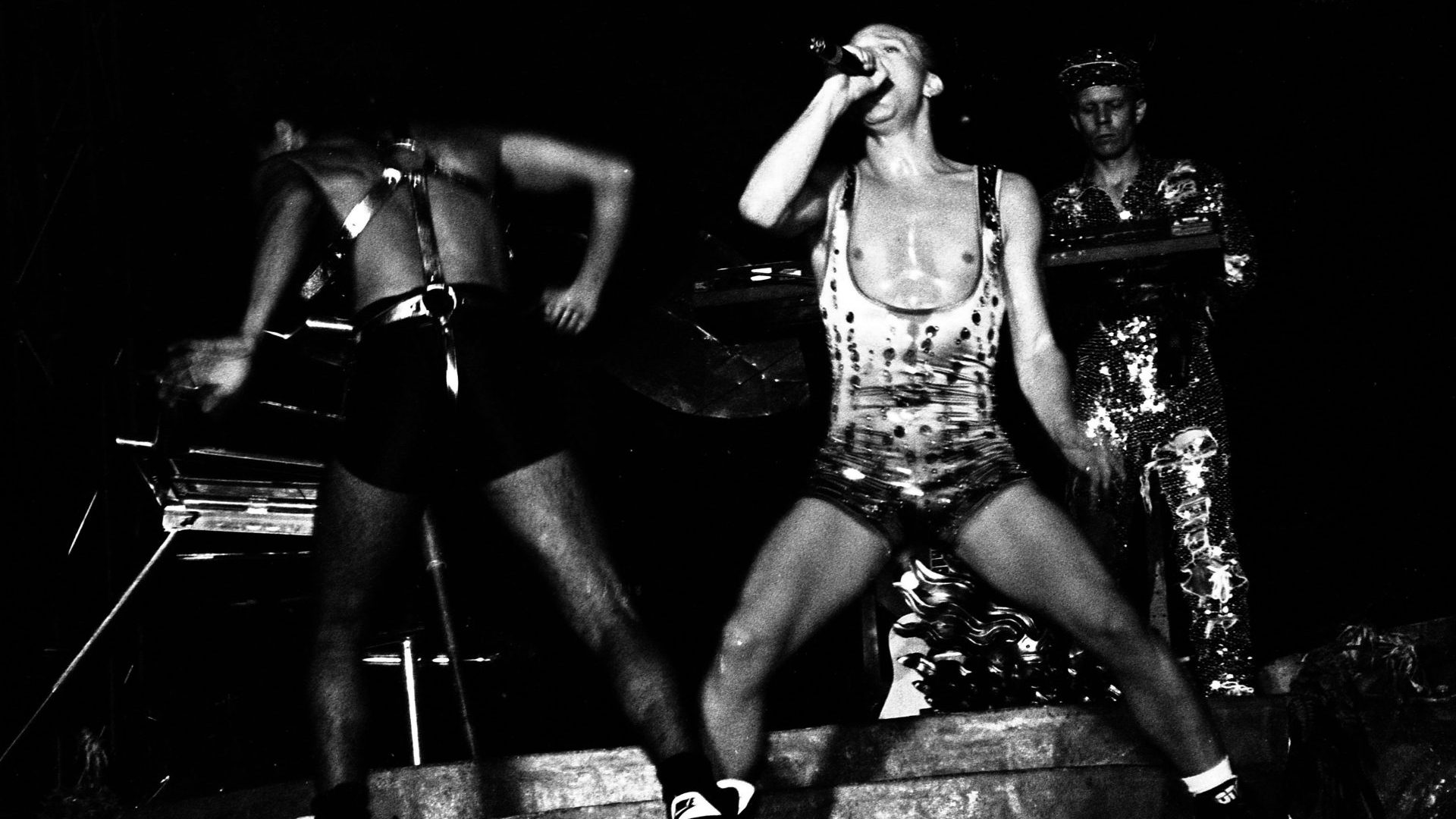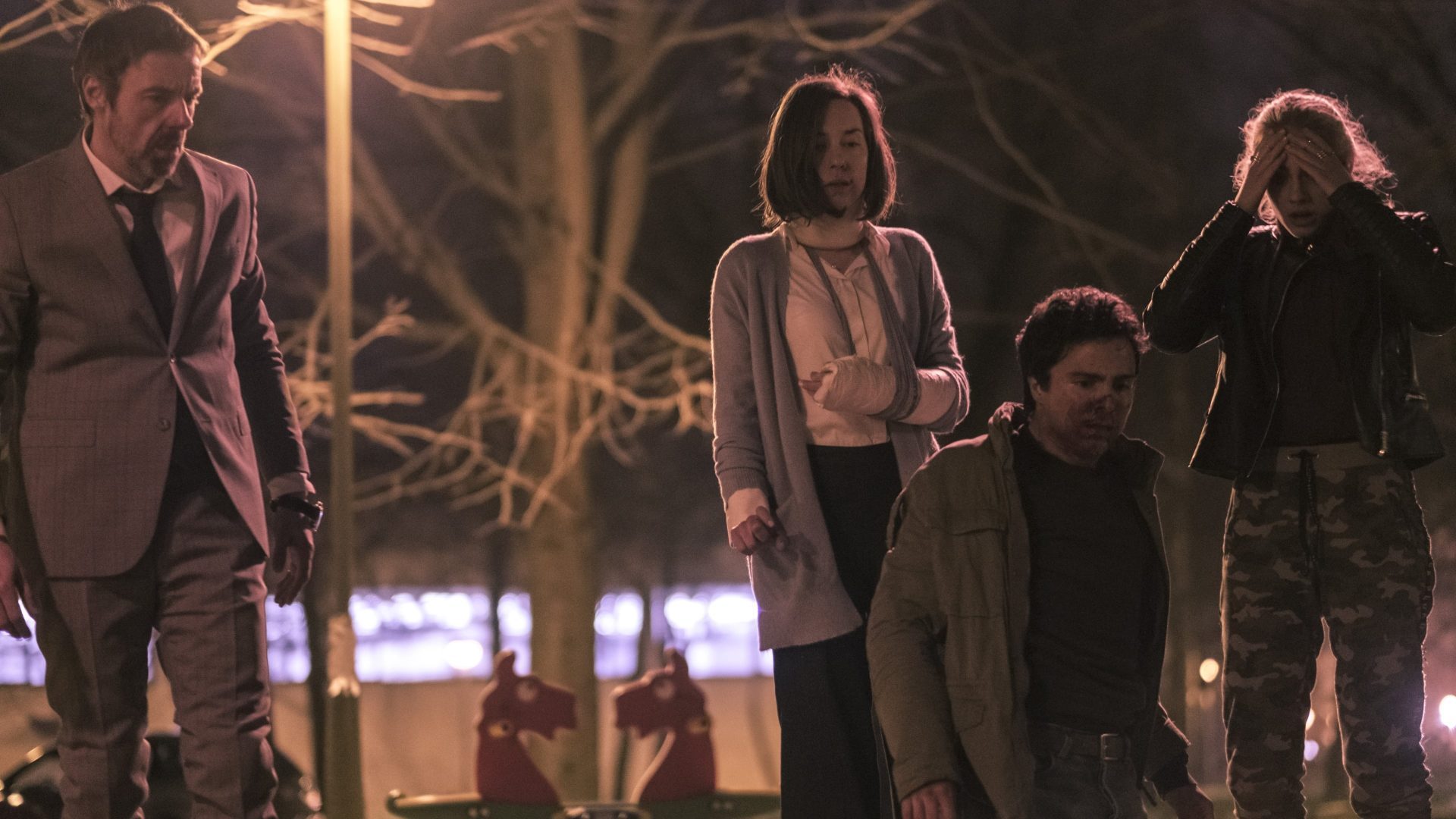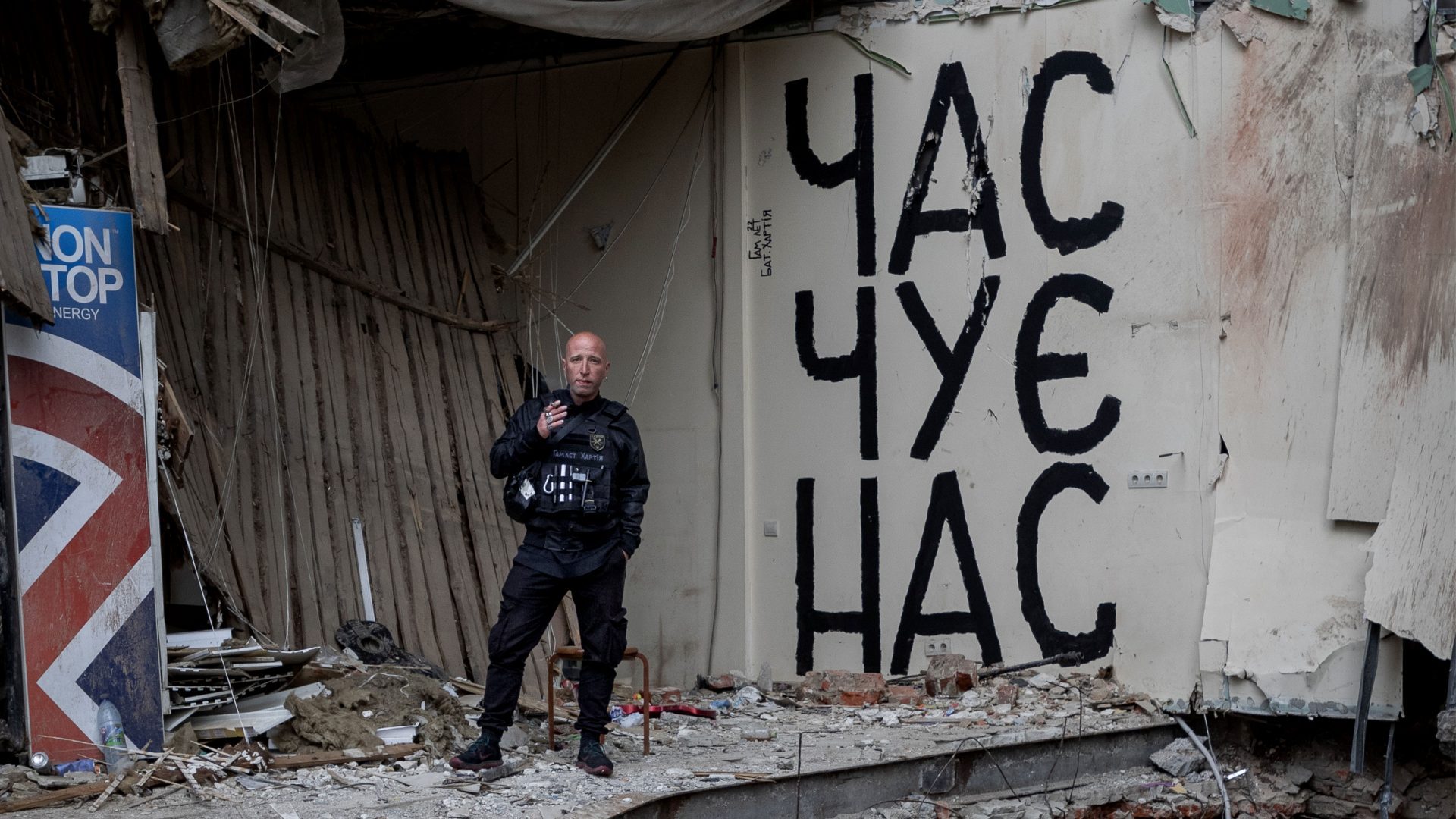Erasure are the best band Britain has produced in the last 40 years. Discuss.
This proposition seems a hard sell. The electronic duo’s biggest hit was their 1992 EP of ABBA covers, with the camp-on-stilts Take a Chance on Me punctuated by thoroughly early-90s ragga toast and its video finding the pair cavorting around dressed as Agnetha and Frida. It spent five consecutive weeks at No 1, but since the mid-1990s they have troubled the Top 10 only twice. The pair would probably go unrecognised on your average high street.
But Erasure are proof that genius often resides in British eccentricity. The most unlikely duo imaginable, the statuesque Andy Bell has the vocal gravitas of a gospel singer and a taste for the wildest of stage costumes. The
diminutive Vince Clarke, meanwhile, is the shaven-headed Essex boy synth
nerd twiddling knobs at the back.
But together Bell and Clarke have found an alchemy that has produced some of pop’s most achingly romantic, exquisitely agonised songs which, paradoxically, also often explode with ecstatic energy. They made some of the most enduring pop hits of the 1980s and early 1990s and you would be hard pushed to find a better collection of songs than their brilliantly titled
compilations Pop! The First 20 Hits (1992) or Total Pop! The First 40 Hits (2009).
Then there is the small matter of Clarke’s status as an electronic pioneer who changed music forever. Clarke was only 26 when Erasure’s breakthrough 1986 single Sometimes appeared, but he had already proved his pop genius in
spades, having had two major hits with Depeche Mode and racking up four
more with Alison Moyet as Yazoo. Their Don’t Go and Situation became US
Dance Chart No 1s and both Detroit techno and Chicago house looked to
Clarke’s early hits as inspiration.
After releasing just one single with Feargal Sharkey and Eric Radcliffe as
The Assembly, Clarke was again looking for a new project. When he placed an ad in Melody Maker in 1985 stating “established songwriter seeks versatile singer”, it would have been reasonable to expect little to come of it given how short-lived his previous collaborations had been. But Bell replied and, pushing 40 years later, here we are, with the pair releasing their nineteenth album, Day-Glo (Based on a True Story), this week.
Day-Glo emerged from 2020’s The Neon, with Clarke pressing his old analogue synths into service to make a return to euphoric synthpop form, and it was their highest-charting album for 26 years. Then Clarke found himself, mid-pandemic, noodling around with the files from The Neon and Day-Glo emerged from and in some senses echoes its parent LP. But it is also a
record that has a strong sense of improvisation and collage, most prominently in Bell’s vocals becoming chopped and spliced, their power
harnessed in a new way.
Day-Glo positively bursts with the sense of Clarke being absolutely in his element. There are propulsive beats aplenty, but the mood ranges from the
pure electronic ecstasy of tracks like Bop Beat and Inside Out to a slowed-down, chill-out feel on the four closing tracks, and the New Agey vibe of the
opening Based on a True Story.
Given Day-Glo was preceded by The Neon Remixed, few pop acts can boast such a trio of albums, each a reiteration of the last. Indeed, with Erasure still on pioneering independent record label Mute Records, they have had an unusual degree of freedom, and what might be dubbed “The Neon Trilogy”
has its predecessors. 2003 covers album Other People’s Songs was nothing if not idiosyncratic, while 2006’s Union Street was a Country-flavoured acoustic
album by the last band on Earth you would expect one from.
But perhaps most engaging was World Beyond (2018), a re-recording of the previous year’s LP World Be Gone, but with instrumentation from the Belgian post-classical ensemble the Echo Collective, stripping away Clarke’s technical bells and whistles and putting Andy Bell’s peerless voice centre stage amid lush, dramatic arrangements. The record’s lyrics, concerned with the depressing state of the world in that Trump presidency, post-Brexit vote year, truly came to life in the record’s second incarnation.
And it is this quiet, unselfconscious experimentation, underpinned by the
desire to always make something that moves the heart or the feet, that is
perhaps what makes Erasure so great. Even that ABBA cover showed those
qualities, and this is a band Britain is lucky to have.
Day-Glo (Based on a True Story) will be released by Mute on August 12
ERASURE in five songs
Sometimes (1986)
At once sexy, romantic and defiant, Erasure’s breakthrough hit was only kept off No 1 by the rock pomp of Europe’s The Final Countdown.
A Little Respect (1988)
The band’s finest hour, this track was the blueprint for Erasure’s magical brand of tortured euphoria, with Bell’s impassioned vocals proving the ideal foil for Clarke’s perfectly formed synthpop track.
Always (1994)
Bringing together one of Vince Clarke’s most beautiful melodies with some of Andy Bell’s most heartrending plaintive lyrics, this was also a deserved chart hit.
Breathe (2005)
A late career hit from the return-to-form LP Nightbird, this melancholic
track’s success was partly down to Erasure’s retro electro sound having
become fashionable again.
Now (2022)
A stand-out track from new album Day-Glo, Now has the fragile hopefulness that has been Erasure’s speciality over their almost 40-year career.




